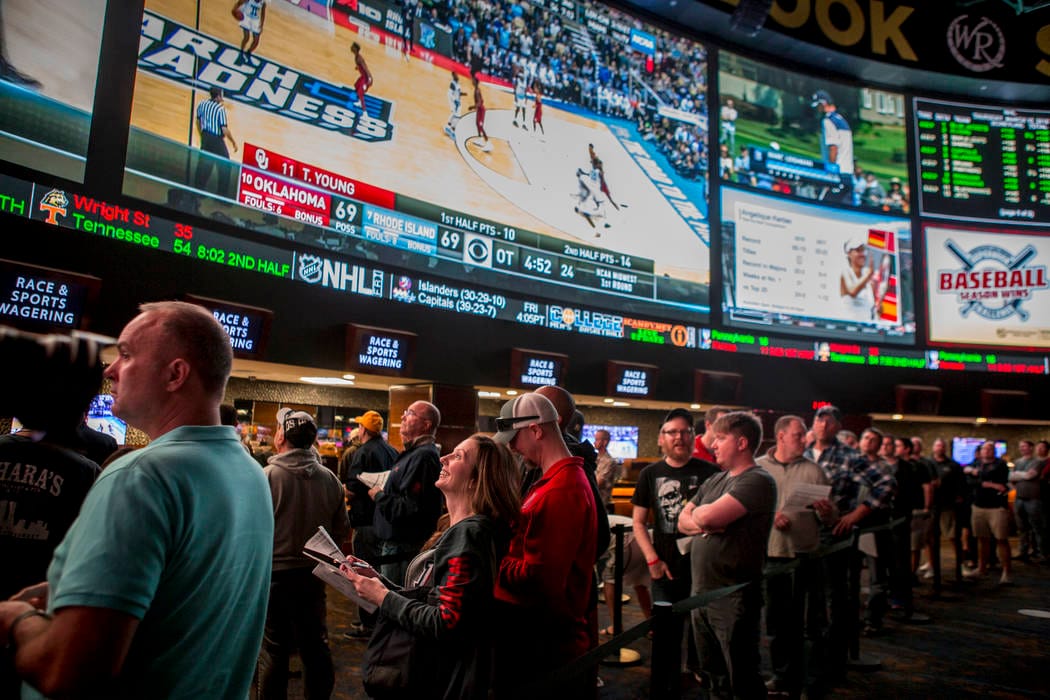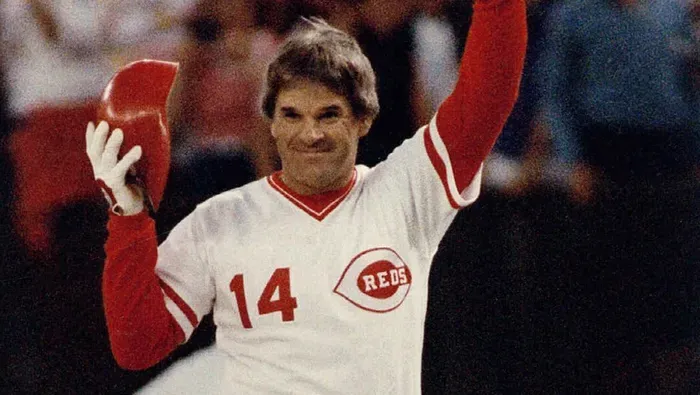Gambling will continue to ruin sports

Call me old (you wouldn't be wrong), but I have never been able to wrap my head around how readily accepted gambling in sports has become. As I write this, I still shake my head at the thought, just like I do about the acceptance and legalization of smoking marijuana in public, but that's a discussion for another day.
I am 52 now. I have lost my passion for sports for many reasons. One of them is the absorbent amount of money players make. Another reason is how much players move from team to team.
But for the first forty years of my life, I am confident in saying that there were not many people more knowledgeable about sports than me. As my prime exhibit, I present my domination of Yahoo fantasy sports leagues from its inception until about 2010, especially in baseball. I knew every major league player and every top prospect. I could recite their stats off the top of my head. I checked the transactions every day to try and be the first to find out when a top prospect got called up. I can still remember how psyched I was to pick up Mike Trout in all my leagues when he got called up.
Now that I think about it, I may have stopped doing the Yahoo fantasy baseball leagues when they introduced fantasy leagues that you could pay to enter and win a cash prize at the end of the season. That may have been the precursor to all the widespread gambling on sports that exists today.
I remember thinking at the time, how can Yahoo get away with this? This is gambling. You are paying money in anticipation of winning more depending on the outcome of games.
I have no idea when Yahoo started offering cash fantasy leagues, but I am guessing it was around 2010. I am guessing that because in 2011, the U.S. government banned online poker. I remember the year because I was playing online poker as my main source of income for a few years.
I was pissed that the government banned online poker. I was even more pissed when I realized that what Yahoo was doing was the exact same thing, and it was allowed. Essentially, you would “buy in” to a league just like you would buy-in to a poker tournament. Then Yahoo would award cash prizes at the end of the season to whoever finished in the top spots in each league – say, for example, in a twelve player league, the top three spots would get paid. How was that any different from entering a poker tournament and seeing the top surviving players winning cash prizes?
It wasn’t. This was legalized gambling and Yahoo, somehow, was getting away with it.
Gambling on sports has always, always, always been frowned upon. The all-time leader in hits, Pete Rose, is not in the Baseball Hall of Fame because he bet on games. For the longest time, he was not even allowed to step foot in a major league baseball stadium.

Any baseball fan worth his salt has heard of the "Black Sox scandal" when a handful of Chicago White Sox players in 1919 were accused of purposely losing the World Series to the heavy underdog, Cincinnati Reds. “Shoeless” Joe Jackson was one of the greatest hitters of all-time, but he got permanently banned from baseball for his alleged participation in the gambling scandal. You might remember Shoeless Joe from his emergence from the corn fields in the movie "Field of Dreams."
There was NBA official, Tim Donaghy, who admitted to betting on games which he officiated from 2003-2007. There have been countless other “point-shaving” scandals in college basketball over the years – the most famous involved Boston College in 1978 and Tulane in 1984. Point shaving involves players purposely missing shots or turning the ball over in order for the team to win or lose by a certain amount of points.
Gambling has always been banned in sports for this very reason. Players, managers, and officials have the power to influence games any way they please. Gambling also has Mafia undertones. Players and coaches could be threatened by nefarious entities to win or lose games.
It made sense to ban gambling on sports.
But today, gambling on sports is widely accepted. It is everywhere. Legalized sports books are popping up all over the country. You want to bet on how long the national anthem is going to be at the Super Bowl? No problem. You want to bet how many times Taylor Swift will be shown during a televised Kansas City Chiefs’ game? Go ahead. You want to bet on the coin toss before a football game? You’re the epitome of a degenerate gambler, but go ahead.
I can’t go a day without hearing a commercial for the two biggest sports betting companies, FanDuel and DraftKings. You can make bets while sitting on the toilet in your own home if you want. You can make bets while sitting in the Target parking lot while waiting for your wife to finish shopping. You can bet any amount from anywhere at any time.
It blows my mind. Broadcaster Al Michaels is famous for making vague betting references over the years during NFL games such as, “That kicker just made a lot of people happy by making that meaningless field goal in the waning moments of this blowout.” Now, the spreads of football games are displayed, prominently, all the time during games. They will even show fluctuating betting lines over the course of a game. It is all right there on the TV screen.
I mention all this because of the latest scandal involving $700 million man, Shohei Ohtani. His interpreter has been accused of stealing $4.5 million from him in order to settle gambling debts. Four and a half million dollars!!!
Again, call me old fashioned, but this is just the tip of the iceberg in my eyes. Gambling is going to ruin sports. This cannot continue. Maybe the mafia is dead, but there is always some malevolent element out there.
Just this week the Powerball jackpot was over one billion dollars. Nobody had won for four months. The latest drawing was delayed, for whatever reason, for hours after its scheduled time. After the numbers were finally drawn, it was announced there was one winner. Sorry – stuff like this makes me suspicious. I am pretty sure this delayed drawing happened one other time before one ticket was announced the winner of a billion dollar jackpot.
The Ohtani story will not be the last we hear of the dangers of sports betting. Fifteen years ago, I would have loved the idea of legalized sports gambling, just like I would have loved the idea of legalized online poker. My brain was sharper back then. My knowledge of sports was deeper.
But whenever money enters the equation, there is the strong possibility – I would even say likelihood – of cheating being involved. There will always be people looking for an edge. As an example, I have been playing online chess a lot lately, and there is a large debate in the online chess community about widespread cheating. You can be playing chess on a computer and input the moves into an app on your phone which will then tell you what is the optimum next move. This is going on in online chess! Who knew? Cheating is everywhere.
There are many reasons why I have lost my passion for sports. Add sports gambling to my list.

